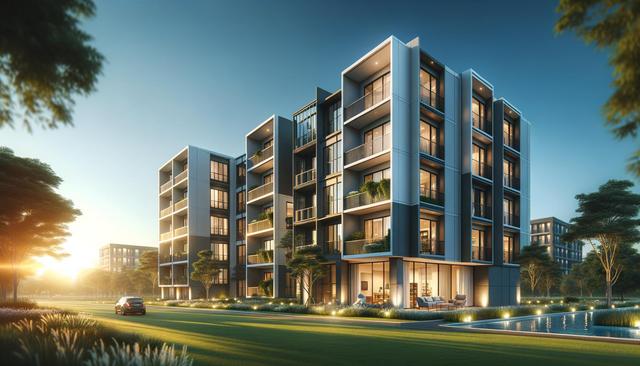What to Know Before Choosing an Apartment
With the current housing market shifting, many are debating whether renting is a better option than buying. When considering affordability and flexibility, renting often emerges as a practical solution—especially for those not ready for long-term commitments. Whether you’re relocating for work, downsizing, or just starting out, there are numerous factors you should evaluate to find the right place. Searching online for “apartments for rent nearby” is a good first step, but knowing your priorities is essential.
Begin by outlining your must-haves versus nice-to-haves. For instance, is it more important to be close to work or to have modern amenities? Some common considerations include:
- Proximity to public transit or major highways
- Availability of pet-friendly policies
- On-site amenities like laundry, gym, or parking
- Security features and neighborhood safety
Once you have a clear picture, you’ll feel more confident navigating listings and comparing options.
Understanding the True Cost of Renting
It’s easy to focus on the monthly rent, but renting involves more than just that number. Expenses such as utilities, maintenance fees, and deposits can add up quickly. When searching for “cheap apartments near me,” it’s crucial to dig deeper into what’s included in the cost. A lower base rent might not be the best value if you’re covering all other expenses separately.
Key costs to factor into your budget include:
- Security deposit (usually equivalent to one month’s rent)
- Pet fees (common in pet-friendly apartments available)
- Application and administrative fees
- Utility costs like electricity, water, and internet
Understanding the full financial picture will help prevent surprises later on and ensure the apartment you choose aligns with your monthly budget.
Renting vs. Buying: What Makes Sense for You?
The renting vs. buying debate depends heavily on your financial situation, lifestyle, and future plans. Renting offers lower upfront costs and greater mobility, making it an attractive option for many. For those who value flexibility or anticipate moving within a few years, renting may be more suitable than investing in property. Searching through the “best apartment rental websites” can help you spot trends in pricing and availability, helping you make an informed decision.
Some advantages of renting include:
- No long-term mortgage commitment
- Fewer maintenance responsibilities
- Access to amenities without extra costs
- Opportunities to explore different neighborhoods before settling down
However, buying may be better suited for individuals with long-term stability and the desire to build equity. Carefully weighing these pros and cons will guide you toward the right choice.
Choosing the Right Location and Layout
Location is one of the most important factors when selecting an apartment. Some of the “best cities for apartments” offer a mix of affordability, job opportunities, and livability. Urban areas may have higher rents but provide convenient access to public services and entertainment. On the other hand, suburban or smaller city options may offer more space and tranquility at lower costs.
When evaluating potential neighborhoods, consider:
- Commute time to work or school
- Access to grocery stores, healthcare, and parks
- Overall neighborhood vibe and community
Layout also plays a key role. Studio apartments may be cheaper and easier to maintain, while one or two-bedroom units offer more privacy and flexibility. It’s important to visit potential apartments in person if possible or take virtual tours provided on reputable websites. Doing so helps you visualize your daily routines and determine whether the space meets your needs.
Know Your Lease Obligations
Before signing anything, it’s essential to understand the terms of your lease. Each landlord or property manager may have unique rules, so reviewing an “apartment lease agreement guide” can be incredibly helpful. Make sure to ask about lease duration, renewal options, and penalties for breaking the lease early.
Important lease details often include:
- Rent due date and acceptable payment methods
- Maintenance responsibilities and repair request process
- Rules on subletting or having guests
- Pet policies and restrictions
Understanding these terms in advance protects you from potential conflicts and gives you peace of mind. If anything is unclear, don’t hesitate to ask for clarification or request modifications in writing. A transparent lease agreement benefits both you and your landlord.
Conclusion: Making a Smart Apartment Choice
Finding affordable apartments that suit your lifestyle and budget doesn’t have to be complicated. By considering factors such as total cost, lease terms, neighborhood suitability, and pet policies, you can make a more informed decision. Whether you’re browsing “pet-friendly apartments available” or searching the “best apartment rental websites,” staying organized and informed will help you secure a place that feels like home. Take your time, know your priorities, and don’t be afraid to ask questions—doing so ensures your next apartment supports both your current needs and future plans.



Leave a Reply